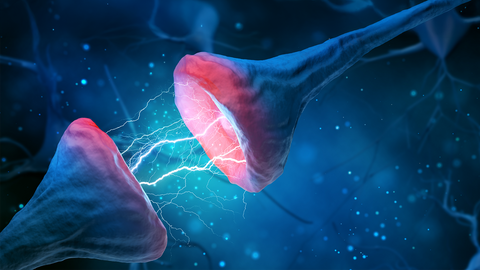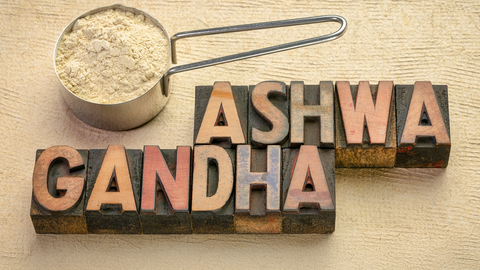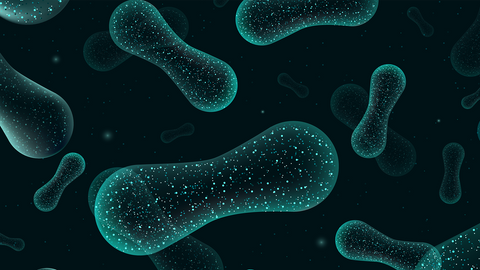Education

If stress has been a major issue lately, you may want to take a quick look around you. According to Dr. Sherry Bourg Carter of Psychology Today, one of the most overlooked stressors could be hiding in plain sight: clutter. That’s right, too much 'stuff' in your home or workspace could be contributing directly to your frazzled state of mind.

The end of last week, January 12th, marked a very important, yet under-reported moment in our calendar year. That was the day, statistically, when most people gave up on their New Year's Resolutions. According to Strava, a social media network for athletes, a survey of 31.5 million participants revealed that Saturday was the day most Americans bailed on many of their health and fitness goals.

If you're looking for a way to stay mentally sharp, consider this: swimming may be one of, if not the best exercise for your brain. You no doubt know of the physical benefits of swimming: increased endurance, cardiovascular health, and a toned physique. What you may not realize, however, is that science is discovering how swimming uniquely affects the brain. Some studies indicate that the brain responds differently to swimming than perhaps any other type of exercise. If you make swimming a part of your regular routine, you may enjoy better focus, mood, and a jolt of mental energy.

If you’ve ever fallen in love, you know full well how powerful its effects can be (for better or worse!) As it turns out, science has revealed that there’s a good reason why love is such a big deal. The effects it can have on us, especially our brains, are like no other. It creates not only euphoria, joy, and fulfillment, but it can also create chemical dependency in our minds. Some researchers even compare the effects of love to hard drugs in terms of its addictive quality.
If you’re still not convinced of the power of love, continue reading to learn about the surprising effects of love on the brain.

You hear the word 'neurotransmitter' thrown around all the time in the health industry, but it's not always clear what they are or why they matter. Today we want to take a deeper look at how neurotransmitters function--what they do for you, and why you need them for your body to perform optimally. Scroll down to read more about neurotransmitters and how they could be affecting the way you think and feel.

All of us who are older than say, 18, remember well what life was like before smartphones. We remember how quickly how they went from being a luxury to a necessity. Now, many of us couldn’t even do our jobs without them. Smartphones are so pervasive that physical therapists are now warning against a phenomenon called ‘text neck,’ which is a deformity in posture due to constantly looking down at a phone. But bad posture may not be the only side effect of phone addiction. Scientists are just now beginning to understand how smartphones may actually be changing our brains–and mostly for the worse. Today we look at some of the cognitive effects of smartphones; also, we will explore ways you can detach from your phone and enjoy life.

Once used in ancient India, now embraced by natural health experts, ashwagandha is an herb long-known for its medicinal properties. For more than 3,000 years, ashwagandha has been used in a form of natural healing called Ayurveda. You may have heard that word thrown around in recent years, but if you're not familiar, Ayurveda is a type of alternative medicine practiced in both ancient and modern-day India. For millennia, practitioners have believed that ashwagandha benefits the body by enhancing immunity, longevity, and stamina.

Caffeine is for many people a constant morning companion, and a lot of us couldn’t imagine life without it. But is it healthy? Over the years, news reports seem to conflict on whether or not caffeine is a good or bad thing. To put the matter to rest, we rounded up the definitive scientific research on the matter. In this article, we review the benefits, potential negatives, and some of the most frequently asked questions about America’s favorite stimulant.

If you're a seasoned veteran of the gym or just been working out a few months, you've likely started seeing some benefits from exercise that you didn't expect. We all know that working out helps us look good and feel good, but it's not until we actually start doing it that we realize just how many hidden benefits there are. Your body is like an ecosystem. When one part is affected, it can have a downstream effect on all of the others. This can be true in a bad way, but also in a good way. Although the connection may not be obvious, exercise can have an important impact on our sleep. Today we take a look at some of the benefits of exercise for our sleep as well as recommendations for how to incorporate the best workout routine for your rest.

If you’re like most Americans, stress is something you manage on a regular basis. As a country we’re stressed out, and the increasing popularity of yoga and meditation reflect our need for rest and relaxation. Peace of mind isn’t always easy to come by, but rediscovering ancient remedies from natural ingredients may help. Let's look at a class of herbs called adaptogens, which are gaining widespread attention for their ability to fight stress. We will look at some of the most popular adaptogens and examine some of the science behind how they work.

If you’ve ever experienced a ‘sugar high,’ or eaten ‘comfort food,’ you know full well how much food can alter your emotional state. In fact, it’s the emotional component that makes us love food—and in some cases get addicted to it.
What’s interesting, however, is that many times foods can affect our mood in ways we don’t realize. There exists a complex network between the gut and the brain, and what we eat can literally become fuel for our emotions—for better or worse.

Does your head feel foggy? Do you wake up inexplicably tired? Do you struggle with mood imbalance for seemingly no real reason? The root cause may be in a place you'd never think to look: the gut. You might be thinking, "Isn't all of this a brain issue?" It certainly is, but scientists are becoming more and more convinced that there is an incredibly complex connection between your gut and your brain. In other words, if something is off with your gut health, it can actually affect how well your brain functions.



